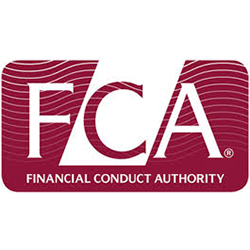Asset Management
UK Regulator Says Asset Management Sector Suffers From Weak Price Competition; Calls For Overhaul

The UK financial regulator highlights a number of shortcomings in the country's asset management sector, saying that price competition isn't strong enough, and that reforms must be made to deliver better value to end-investors.
The UK’s £6.9 trillion ($8.83 trillion) asset management industry
suffers from “weak price competition” that hurts end-investors
and the sector must put clients’ interests first, such as making
it easier for them to adopt cheaper options, the country’s
financial watchdog said in a report today.
The Financial
Conduct Authority published its widely-anticipated Asset
Management Market Study, published following an interim report on
the sector last November. Today’s study analyses whether
investment firms offer value for money.
The watchdog said it proposes to bolster the duty on fund
managers to act in the best interests of investors, make managers
more accountable and bring in a minimum level of independence in
governance structures. The FCA proposes the idea of a single
"all-in" fee to investors to make fund charging simpler. It is
also consulting on the idea of requiring fund managers to return
any risk-free box profits to the fund and disclose box management
practices to investors. (Box profits relate to the spread between
the price at which the fund can be bought and the price at which
it can be sold. This reflects the cost of buying or selling
securities in way that makes sure that new or redeeming investors
do not dilute the value of existing investors' units.) Some media
reports have said a move against such profits could hit managers’
revenues by up to 10 per cent.
The FCA’s study and recommendations come at a time when the
financial services industry is already grappling with the
European Union’s MiFID II directive, which becomes law next year.
That directive is designed, its framers say, to make financial
advice more transparent and improve investor outcomes. The UK
asset management industry has already felt the impact of the
Retail Distribution Review programme of reforms that kicked in
from 2013. One effect already of such reforms has been to
encourage greater use by intermediaries and managers of low-cost
“passive” fund products such as exchange traded funds, raising
fears in the sector of a sustained squeeze on margins and a need
for consolidation to contain costs.
The FCA report made it clear that the financial case for paying
more fees for the supposed “Alpha” from actively-managed funds is
not obvious: “We looked at fund performance, and the relationship
between price and performance. In our additional analysis, we
found substantial variation in performance, both across asset
classes and within them. However, our evidence suggests that, on
average, both actively managed and passively managed funds did
not outperform their own benchmarks after fees. This finding
applies for both retail and institutional investors.”
The report goes on to say that price competition in the UK
sector, notwithstanding reforms such as the RDR, is still not
sharp enough. The report said “we also found high levels of
profitability, with average profit margins of 36 per cent for the
firms we sampled. Firms’ own evidence to us also suggested they
do not typically lower prices to win new business. These factors
combined indicate that price competition is not working as
effectively as it could be”.
Among recommendations in the report is the proposal to make it
easier for fund managers to switch investors to cheaper share
classes; the FCA is seeking views on whether it should introduced
a phased-in sunset clause for trail commissions.
The stakes are high: the UK asset management sector is the
second-largest in the world, overseeing around £6.9 trillion of
assets, which more than £1 trillion is managed for
individual retail clients and £3 trillion for UK pension funds
and other institutional investors. The sector also manages about
£2.7 trillion for overseas clients. The FCA report studied more
than 20,000 share classes and 30,000 investment strategies.
“The final report follows the interim report published last year
which found that price competition is weak in a number of areas
of the industry. Despite a large number of firms operating in the
market, based on our sample, we found evidence of sustained, high
profits over a number of years. We also found that investors are
not always clear what the objectives of funds are, and fund
performance is not always reported against an appropriate
benchmark. Finally, we found concerns about the way the
investment consultant market operates,” the FCA said.
“Although we recognise that the proposed package of remedies will
probably increase costs for some firms, we expect that the
benefits will outweigh any costs. We also expect that any
improvements to outcomes for investors will lead to the UK asset
management industry being a more attractive place to invest and
therefore improve the relative competitiveness of the UK market,”
the FCA said.